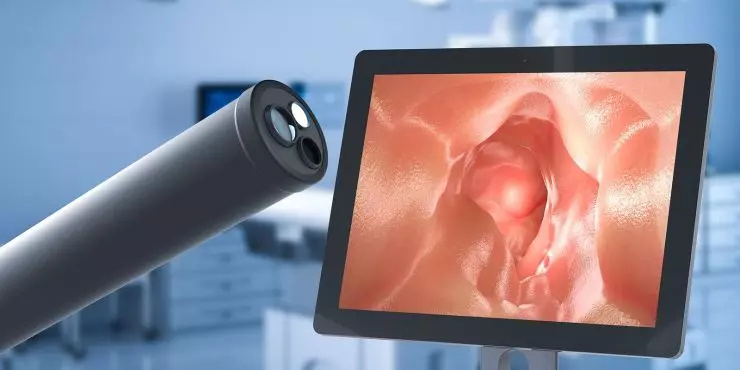
Colon health is a topic many of us dread talking about because it feels embarrassing. Rest assured that there is nothing to be embarrassed about when it comes to discussing your colon health, and your family doctor is happy to answer any questions you may have.
While you may have an idea of what a colonoscopy is, let us explain the procedure, what to expect, recommendations, and the importance of this exam.
What is a Colonoscopy?
A colonoscopy is an exam of the large intestine (colon) and rectum to detect changes or abnormal growths. This procedure can help to detect colon cancer, benign polyps, and explore possible causes of abdominal pain, rectal bleeding, chronic constipation, chronic diarrhea, and other intestinal problems.
What to Expect
The day before your colonoscopy: Your doctor will prescribe you a special diet that typically will restrict eating solid food and encourage you to drink clear liquids only. During this time, you will also be given different kinds of laxatives and stool softeners in liquid and pill form to help empty the colon. The goal is to make the colon as clean as possible, so the doctor can see the walls of your colon well.
The day of your colonoscopy: You will wear a gown for the exam with nothing underneath it and usually be given IV medications to help you relax and reduce any discomfort. The exam normally begins with you laying on your side with your knees bent. Then the doctor will insert a small flexible tube called a colonoscope into your bottom (rectum). A colonoscope is a small tube with a camera on the end that projects onto a monitor. This allows your doctor to see the entire length of your colon and detect any abnormalities. The colonoscope can also remove polyps or other abnormal growths found in your colon. After removal, the tissue samples can later be sent to a lab and analyzed for abnormalities. Most polyps are benign (not cancer), but sometimes they are malignant (cancer). This is how colon cancer can be detected early.
During the procedure, you will feel relaxed due to the sedative but may feel some slight abdominal discomfort. The exam will last approximately 30 minutes.
After your colonoscopy: It will take about 1 hour to recover from the sedative given to you in your IV, and you will need someone to drive you home. The sedative can take a full day to wear off. It is normal to feel a bit bloated or pass gas after the procedure. Some blood in your stool is also common.
Why Are Screening Colonoscopies Important?
While we know getting a colonoscopy isn’t a “fun” procedure, it is extremely important. Regular screening colonoscopies (often every 5 to 10 years) can prevent colon cancer or help detect it early before it spreads.
Colon cancer is highly treatable if caught early. Bottom line…making time to get this procedure done is key to the prevention and treatment of colon cancer.
Additional Colonoscopy Questions:
At what age should I begin regular screening colonoscopies?
For most adults, screening colonoscopies are recommended starting at age 45. However, it is often recommended to start screening colonoscopies earlier if you have a family history.
How often do screening colonoscopies need to be done?
Typically, every 5-10 years, and again varies from patient to patient.
How do I know if I need a colonoscopy?
Ask your doctor during your next visit, as every patient is unique.
Can my primary care doctor do the procedure?
Yes! Many family doctors can perform screening colonoscopies. In fact, at Northwest Family Clinics, we have four physicians who regularly perform coloscopies at each of our three clinics. Over the past 12 years, NWF physicians have performed more than 10,000 colonoscopies!
Have More Questions?
Your primary care physician is a great resource to help answer any additional questions you may have about when and how to schedule your next colonoscopy. Come prepared for your next visit with questions, family history of colon cancer, and any symptoms you may be experiencing.